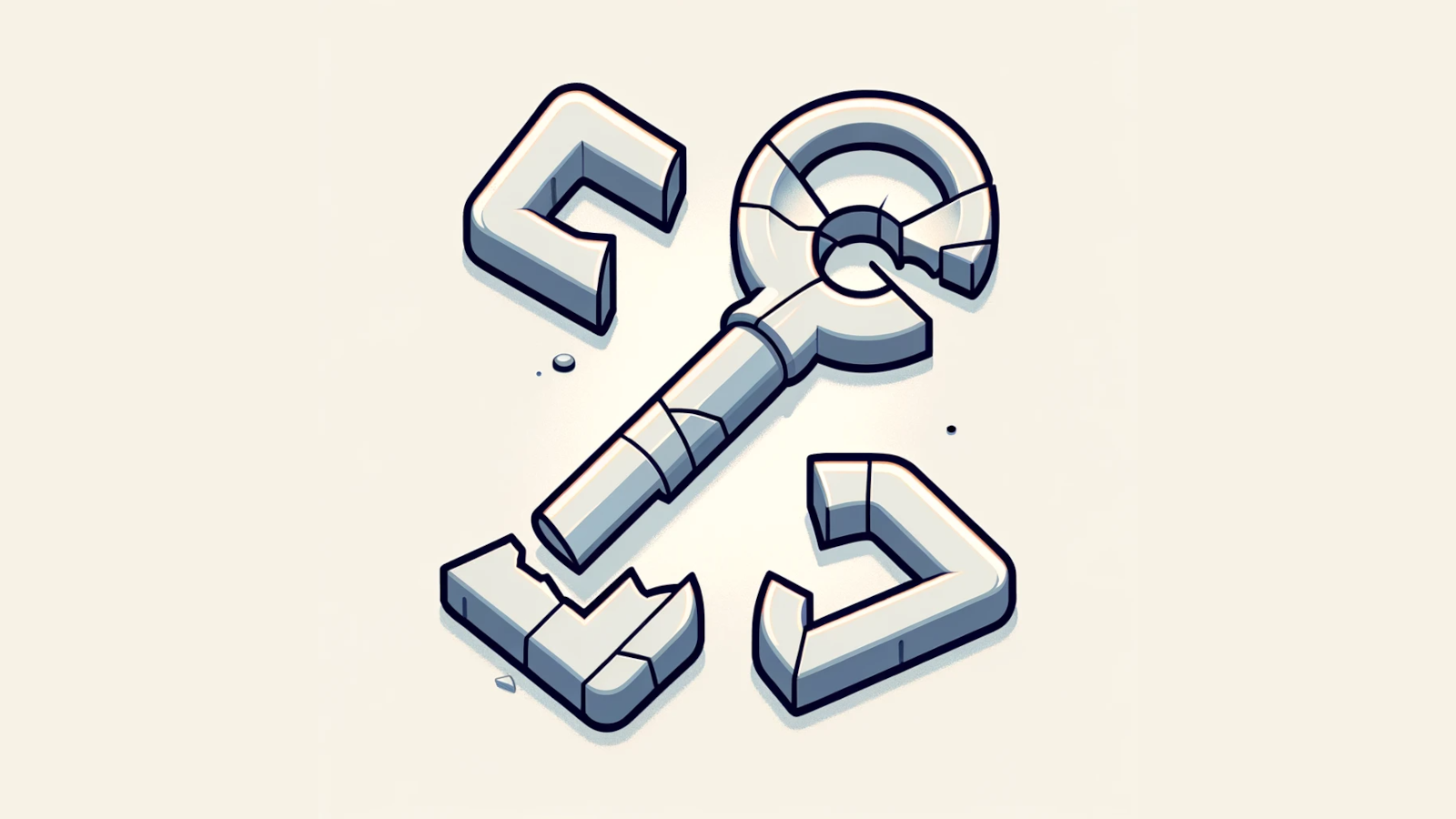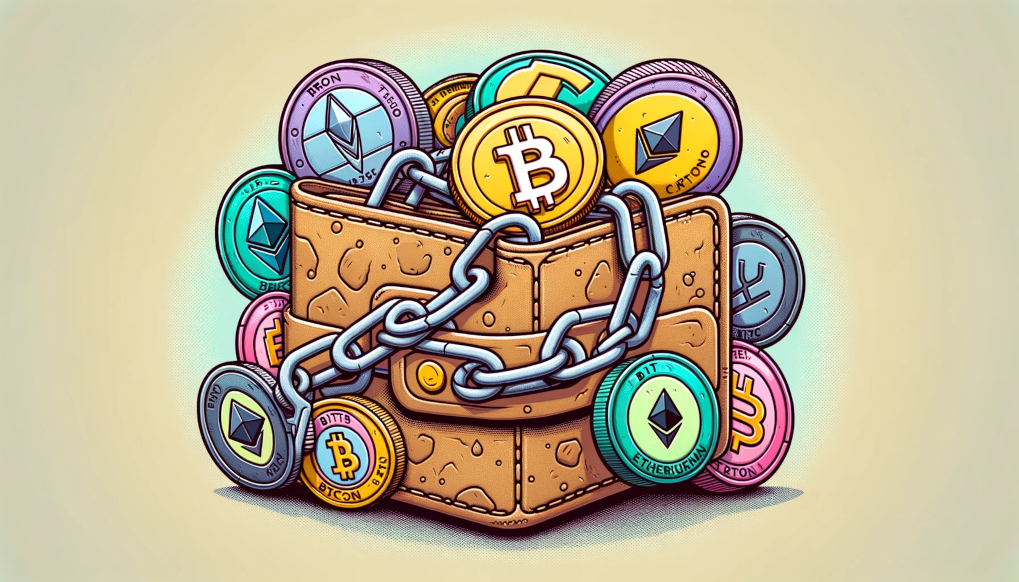Best Practices for Private Key Storage & Crypto Investment Safeguarding

Private keys are the cornerstone of security. They are the gateway to your digital assets, and their safety is paramount. This article will delve into the best practices for private key storage and safeguarding your crypto investment, providing a comprehensive guide to ensure your digital wealth is well-protected.
Understanding Private Keys
A private key in the context of cryptocurrencies is a secret, alphanumeric password used to spend or send your cryptocurrencies to another address. These keys are an integral part of cryptocurrencies and are the critical piece of information that proves the rights of users to spend their cryptocurrencies.Each private key is unique to the user and gives them access to their digital assets. It’s akin to a password that unlocks your cryptocurrency wallet. This key is generated when you create a cryptocurrency wallet. The wallet can be thought of as a personal locker, where your cryptocurrencies are stored. The private key, therefore, is the key to this locker.
The private key is a complex form of cryptography that ensures secure transactions. It creates a unique signature that is required to authorize these transactions, providing a mathematical proof that they have come from the owner of the wallet. This signature also ensures the transaction cannot be altered once it has been issued.
In essence, private keys are your claim to your digital assets. If someone else gains access to your private key, they essentially gain control over your funds. They can send your cryptocurrencies to their wallet, and you would have no way of getting them back. This is why it’s crucial to keep your private keys secret and secure.
However, it’s also important to note that if you lose your private key, you lose access to your cryptocurrencies. There is no ‘forgot my password’ option in the world of cryptocurrencies. This is why understanding how to safely store private keys is essential for protecting your funds from both unauthorized access and loss.
Private keys should never be revealed to anyone.
How Big is the Risk: Case Studies
Case Study: Stefan Thomas
Stefan Thomas, a German-born programmer living in San Francisco, has two guesses left to figure out a password that is worth, as of this week, about $220 million. The password will let him unlock a small hard drive, known as an IronKey, which contains the private keys to a digital wallet that holds 7,002 Bitcoin. The problem is that Mr. Thomas years ago lost the paper where he wrote down the password for his IronKey, which gives users 10 guesses before it seizes up and encrypts its contents forever. He has since tried eight of his most commonly used password formulations — to no avail.
Case Study: James Howells
James Howells lost his Bitcoin private keys and it cost him a loss of around $79 million! Howells had around 7500 Bitcoins in 2009 and had stored the private keys of the Bitcoins in a hard disk. Four years later, he had two similar hard disks in a drawer out of which one was empty and corrupted while the other one was containing the Bitcoin credentials. Unfortunately, in the sake of throwing the corrupted disk, he threw away the disk that contained the Bitcoin private keys.
Case Study: Syl Turner
Syl Turner, a software engineer in Atlanta, bought two Bitcoins and saved the private keys in his computer. He recalls, at that time, Bitcoin was not so valuable so he didn’t care about the keys. A few years later, he bought a new laptop and threw his old computer in his attic. In 2017, when he heard about the value of Bitcoin, he recalled that he also had mined two. He went to his attic and checked for the old computer. The computer was not working now and all the data was erased. And unfortunately, he lost around $35000.
Case Study: Alex
Alex mined around 1000 Bitcoins in 2009 and stored the private keys in a USB drive so that if anything happens to his computer, he would still have a backup. After a few months due to some technical error, he wiped all the data of his computer by assuming he still had the backup for Bitcoins. When he heard about the value of Bitcoin in 2017, he was dreaming to be a millionaire. He inserted his USB drive in the laptop but unfortunately, the drive became corrupted and eventually died. He couldn’t believe he lost millions of dollars in a few seconds.
Types of Wallets to Secure Your Crypto Assets
Software Wallets
Software wallets are applications that you can install on your computer or smartphone. They generate and store your private keys on your device. While they provide convenience and easy access, they are vulnerable to malware, hacking, and device failure. Therefore, it’s crucial to prioritize the security of your crypto private keys by employing a strong password and keeping the software updated.
Hardware Wallets
Hardware wallets are physical devices designed to securely store private keys offline. They are immune to computer viruses and are considered one of the safest ways to store cryptocurrencies. However, they can be expensive and may require more technical knowledge to operate.
In a separate article, we take a deep look into Software Wallets VS Hardware Wallets.
Paper Wallets
Paper wallets involve printing out your private keys on a piece of paper and storing it in a safe place. This method is immune to online hacking attempts as it’s completely offline. However, it’s susceptible to physical hazards like fire, water damage, or simply getting lost.
Metal Wallets
Metal wallets are similar to paper wallets but are designed to withstand physical damage. They involve engraving or etching your private keys onto a piece of metal. They are fireproof, waterproof, and durable.
Brain Wallets
Brain wallets involve memorizing your private keys. While this method eliminates the risk of physical theft or damage, it’s generally not recommended due to the difficulty of memorizing complex private keys and the risk of forgetting them.
Best Practices for Private Key Storage
Use Strong Passwords
When utilizing a software wallet, it’s crucial to use a strong password. A robust password should be long, unique, and include a mix of letters, numbers, and symbols. Avoid using easily guessable information like birthdays or pet names.
Store Offline When Possible
Storing your private keys offline, also known as “cold storage,” can significantly reduce the risk of hacking. This can be done using hardware wallets, paper wallets, or metal wallets.
Don’t Self-Custody Private Keys
Unless you are confident in your ability to securely store your private keys, consider using a trusted third-party custodian. These are services that specialize in securely storing private keys.
Never Share Your Private Key
Your private key is like the PIN to your bank account. Never share it with anyone. Be wary of scams or phishing attempts asking for your private key.
Use Multi-Signature Wallets
Multi-signature wallets like our TotalSig require multiple keys to authorize a transaction. This adds an extra layer of security and is especially useful for businesses or joint accounts.
Safeguarding Your Crypto Investment
Regular Updates and Maintenance
Keep your software wallets updated to ensure you have the latest security features. Regularly check your hardware wallets for any signs of physical damage or tampering.
Be Aware of Scams and Phishing Attacks
Educate yourself about common scams and phishing attacks related to private keys. Be skeptical of unsolicited emails or messages asking for your private keys or other sensitive information.
Legal and Regulatory Considerations
Understand the legal and regulatory environment of your country regarding cryptocurrencies. This includes tax obligations, reporting requirements, and any restrictions on crypto transactions.
Consider Insurance and Protection Services
Some companies offer insurance for your digital assets. This can provide an additional safety net in case of loss or theft.
Prioritize Physical Security
If you’re using a physical form of storage like hardware, paper, or metal wallet, ensure it’s stored in a secure location, such as a safe or a safe deposit box.
Regular Security Audits
Regularly review your security measures to ensure they are up-to-date and effective. This includes checking your wallets for any unauthorized transactions and ensuring your private keys are still secure.
Privacy Considerations
Consider using privacy-focused cryptocurrencies or wallets if privacy is a concern. Be aware that all Bitcoin transactions are publicly visible on the blockchain, which could potentially be traced back to your identity.
Diversification: A Key Strategy for Protecting Your Crypto Investment
Diversification is a risk management strategy that involves spreading your investments across various financial instruments, industries, and other categories to optimize potential returns and minimize risk. This strategy aims to maximize returns by investing in different areas that would each react differently to the same event.
In the context of cryptocurrencies, diversification can be an effective way to manage risk and potentially increase returns. Here’s how:
Diversifying Across Different Cryptocurrencies
Just as with traditional investing, diversifying your crypto portfolio can help protect against volatility and reduce the risk of losing all your money if one cryptocurrency fails or falls in value. For example, instead of investing all your money in Bitcoin, you could spread your investment across Bitcoin, Ethereum, Litecoin, and other cryptocurrencies. This way, if one cryptocurrency experiences a significant drop in value, the others may not be as affected, or they may even increase in value, helping to offset the loss.
Diversifying Across Different Types of Assets
Another way to diversify your crypto portfolio is to invest in different types of assets. This could include a mix of cryptocurrencies, stocks, bonds, commodities, and real estate. This strategy can help protect your investment from the high volatility of the crypto market. For instance, if the crypto market crashes, your stocks or real estate investments may remain stable or even increase in value.
Diversifying Across Different Sectors
Investing in cryptocurrencies that serve different sectors can also be a good strategy. For example, you could invest in Bitcoin, a general-purpose cryptocurrency; Ethereum, a platform for smart contracts; and Ripple, a digital payment protocol. This way, you’re not relying on the success of a single sector.
Diversifying Over Time
This strategy, also known as dollar-cost averaging, involves investing a fixed amount in cryptocurrencies at regular intervals, regardless of the price. This can help mitigate the risk of investing a large amount in a cryptocurrency just before its value decreases.
While diversification can’t guarantee that you won’t suffer losses, it’s a valuable strategy to help you manage risk and volatility in your crypto investment portfolio. As with any investment strategy, it’s important to do your research and consider seeking advice from financial advisors.
You Are Your Own Bank
Safeguarding your private keys and crypto investment requires a combination of technical knowledge, vigilance, and common sense. By following these best practices, you can significantly reduce the risk of loss and ensure your digital assets are secure. Remember, in the world of cryptocurrencies, you are your own bank, and the security of your funds is in your hands.


